Gallipoli families mark 100-year anniversary
- Published
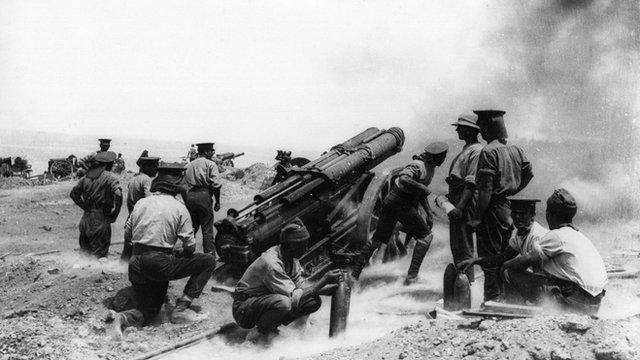
Field gun in action at Helles Bay, Gallipoli, Turkey
One hundred years after the Gallipoli campaign on the Turkish peninsula, families from all over the world are gathering to remember the war dead. Australia and New Zealand mark the anniversary as Anzac Day.
We have been talking to some relatives who will be marking this day.
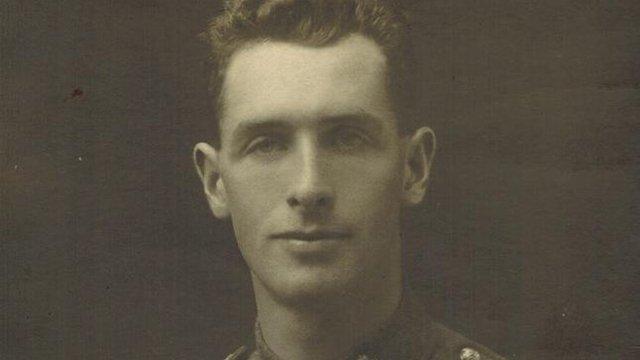
Private Eric Smith
Private Eric Smith - remembered by his daughter Ailsa Siemens in Canada
My dad fought in Gallipoli. He served in the 3rd Scottish Horse, part of the 2nd Mounted Division. He landed at Suvla Bay in late August 1915 and took part in the last large scale battle on 21 August. He served in trench warfare until the evacuation of Suvla Bay on 20 December. When they went out they were 250 strong, on their return they numbered 18. He was then promoted to sergeant. I'm the baby of the family. My dad was 63 when I was born. I'm so proud of my dad, what he went through and the fact that he survived. What they went through was quite horrendous.

Roderick Nicholson - remembered by great granddaughter, Rosanne Kirk in Lincoln, UK
I know bits about my great grandfather. He was in the Dardanelles, where Gallipoli stands in 1915. He lost his arm up to his elbow when he was hit by a grenade and was sent home. So you could say he survived because of that. There is even a rumour within our family that he injured himself on purpose, to get out of fighting. Not all of us believe it. When he came home he was given a prosthetic arm and a number of hooks. He was from an ordinary working family and they didn't pass much on because it simply wasn't talked about back then. I think they were traumatised by the experience so didn't bring it up.

Archibald John Stanley Gallantry - remembered by his great grandson Paul Gallantry in Reading, UK
We believe Archibald was on the HMS M33, as it was called then. It was built in only seven weeks. It was also called the Minerva and was the last surviving ship in the campaign. It's being restored in Portsmouth at the moment. We think my great grandfather was gunning the Turkish positions off shore. He was there for the whole of the campaign. He was lucky. As far as we know he had also fought in Somaliland in 1901 and then in the Royal Navy in Gallipoli in his 30s. We think he carried on right through World War One. Later on he joined passenger cruises and died at sea. He had seven sons - the youngest was my grandfather who was born in 1922.

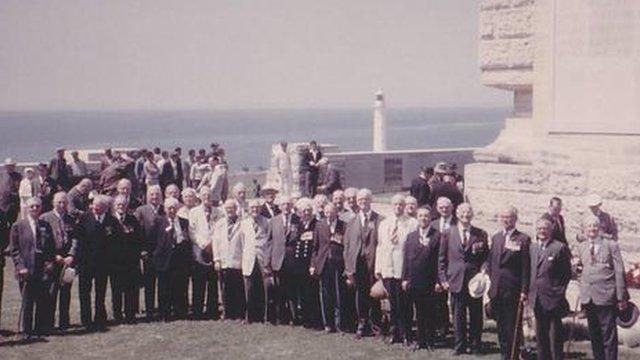
Dudley Meneaud-Lissenburg (third from right) went out there for a reunion in 1965
Dudley Meneaud-Lissenburg - remembered by his daughter Geraldine Meneaud-Lissenburg in Wallington, Surrey, UK
My father was born in 1894 in India and joined the army as a boy soldier. He was one of the 29th Division and sailed to Gallipoli where he stayed for a year and then was discharged. He was a horseman and was given a butcher's horse to take out there. When they withdrew from the peninsula, all the horses had to be shot because the sea was too rough to transport them back. He wrote his memoirs in the 70s. He's quoted in several books, talking about how awful the flies were; how it took three of them to open a pot of jam; and how crunchy the rice pudding because of the flies! I have a photo of a reunion of the veterans who went to Gallipoli in 1965 for the 50th anniversary. However, I'm not sure of the copyright - it was taken by someone on the trip. My father is third from the right. I was born when he was 65.

William Percival - remembered by great granddaughter, Jayne Lamb
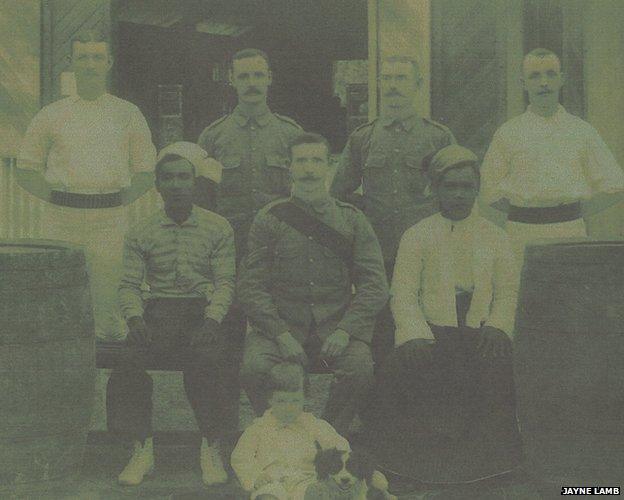
William Percival sitting in the middle, with his son Arthur just in front of him
My great grandfather died in Gallipoli. In February 1915 he sent a letter to his son which is still in our family.
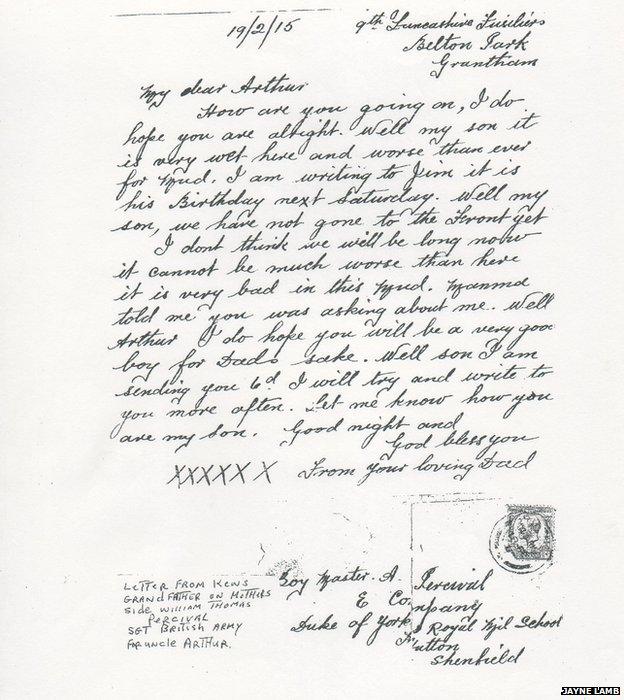
William Percival's letter to his son
Produced by Sherie Ryder